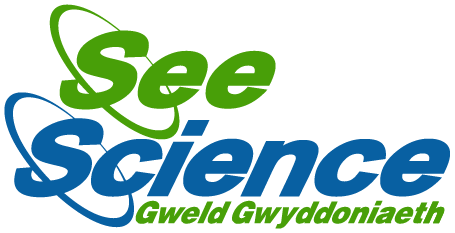Online Science resources
The online Science resources listed below are spilt into nine sections: General Science, Biology, Chemistry, Physics, Space, Food, Energy, Medicine and Other.
Click on the headings below to expand the content for each resource category. Clicking on another heading automatically closes the one previously open.
Resource useful for secondary schools
Resource useful for primary schools
Resource useful for secondary schools
Resource useful for primary schools
Online General Science resources
Online General Science resources
CREST Awards as part of the Primary Curriculum
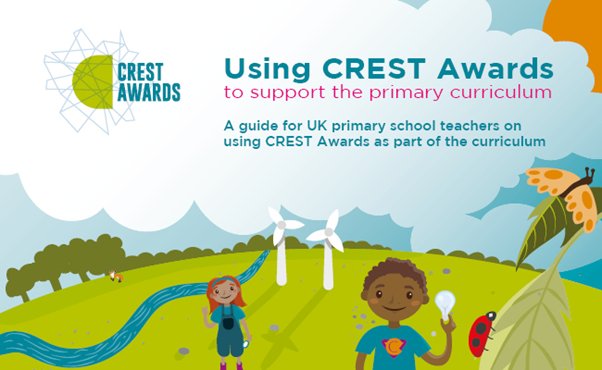 To support Primary teachers to use CREST activities in the classroom, the BSA have issued a guide on using CREST Awards as part of the curriculum. The guide includes a section specifically on the Curriculum for Wales.
To support Primary teachers to use CREST activities in the classroom, the BSA have issued a guide on using CREST Awards as part of the curriculum. The guide includes a section specifically on the Curriculum for Wales.
The CREST guiding principles have been mapped onto the four purposes of the Curriculum and for each of the six science content areas in the Curriculum, activities have been matched from the Star collection for Foundation and from the SuperStar collection for KS2. This guide will make it easier than ever for Primary teachers to incorporate enquiry-based STEM project work into their teaching.
Find it here.
CREST in the secondary curriculum - new curriculum mapping resource for teachers
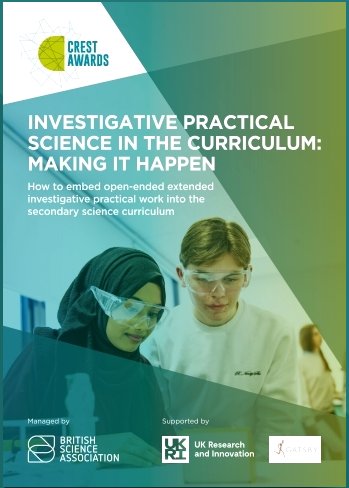 As secondary students settle back into the classroom, there’s no better time to reconnect them with practical science – a vital and invigorating aspect of STEM learning. To help teachers across the UK to embed interactive STEM learning within lessons after an extended period away from the school lab, the British Science Association (BSA) is thrilled to launch a free new resource that maps practical CREST projects onto the science curriculum.
As secondary students settle back into the classroom, there’s no better time to reconnect them with practical science – a vital and invigorating aspect of STEM learning. To help teachers across the UK to embed interactive STEM learning within lessons after an extended period away from the school lab, the British Science Association (BSA) is thrilled to launch a free new resource that maps practical CREST projects onto the science curriculum.
Entitled Investigative Practical Science in the Curriculum: Making it Happen, this mapping resource is an essential tool for any secondary science teacher looking to rejuvenate their lessons with open-ended, extended investigative STEM projects.
The secondary curriculum mapping resource includes invaluable tips to help teachers embed investigative practical work into timetabled lessons. As reflected in the case studies, the pilot schools used CREST projects to successfully teach A-level, BTEC and KS3 lessons to students of all learning abilities across Biology, Chemistry and Physics, highlighting the sheer versatility of the CREST programme. They are also ideal as Individual Projects for the Welsh Baccalaureate at both KS4 and KS5.
Supporting this guidance are easy-to-use, free-to-download mapping workbooks, which match individual Bronze, Silver and Gold CREST Award projects with each area of the secondary science curricula for England, Wales, Scotland and Northern Ireland.
Find the resource here.
Oriel Science Swansea
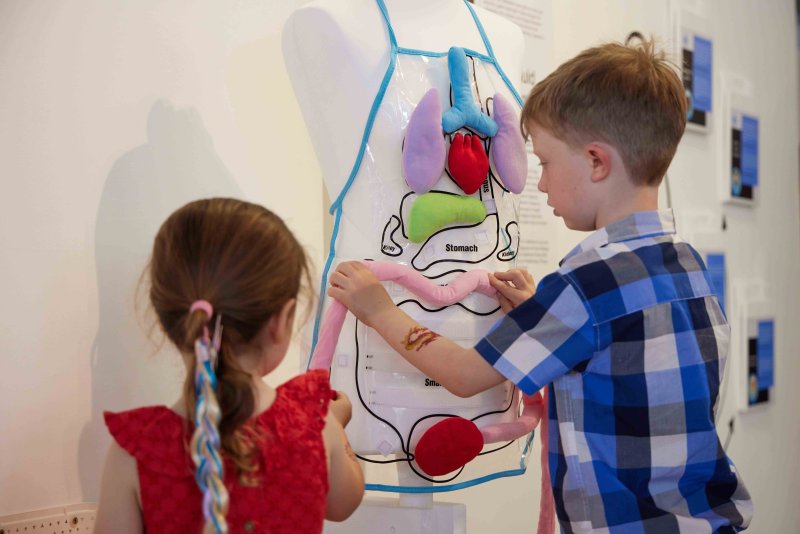 Oriel Science is a science centre and registered charity that brings science to the community through exhibits, workshops and talks. Our innovative project uses research from Swansea University and other institutions to show how important science, technology and innovation are to your everyday lives. We engage and excite school students, inspiring them to become the next generation of scientists, technicians and engineers."
Oriel Science is a science centre and registered charity that brings science to the community through exhibits, workshops and talks. Our innovative project uses research from Swansea University and other institutions to show how important science, technology and innovation are to your everyday lives. We engage and excite school students, inspiring them to become the next generation of scientists, technicians and engineers."
Website: https://www.orielscience.co.uk
Practical Action Education Resources
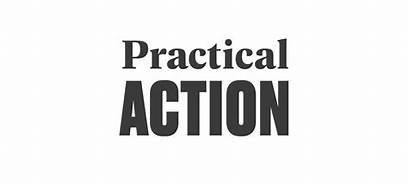 Looking for engaging resources that will inspire your children?
Looking for engaging resources that will inspire your children?
Practical Action's FREE STEM, science, design and technology resources fit the UK curriculum and engage children in real world issues including climate change, renewable energy, food security and disaster preparedness.
The STEM challenges make ideal home learning and/or school-based activities for primary and secondary aged children. Each challenge is easy to navigate as it includes a Teacher’s and separate Parent’s/Carer’s guide to running the challenge, activity sheets, a PowerPoint, a poster and certificates.
Whether your children are developing a floating garden, designing a hand-washing station or reusing plastic for enterprise, rest assured, they will love developing their own ingenious solution to a real world problem.
Practical Action is an innovative international development organisation putting ingenious ideas to work so people in poverty can change their world.
Details here.
The Royal Society - Why Science is for Me animation
 It is important that young people think science is for them, even if they do not want to follow a “science” career.
It is important that young people think science is for them, even if they do not want to follow a “science” career.
The study of science is not just for the gifted and more able students who want a scientific career, but it is relevant to everyone for their future decision making and information processing. This short animation is a tool teachers can use to help demonstrate this to students. The video highlights that science allows students to gain a broad range of transferable skills useful in many careers. Science is a way of thinking, a way of analysing facts and acting upon this analysis; science isn’t about knowing the answers, it’s about knowing what questions to ask.
The animation is designed to be used by those teaching students aged 11 – 16.
Details here.
Wellcome Trust Explorify
Special home schooling page during Covid-19 school closures here.
Explorify is a free programme by the Wellcome Trust for primary school teachers that sparks pupils’ curiosity and develops their thinking skills. It’s free to use, requires very little preparation, and is easy to slot into your everyday timetable.
The programme is open to all teachers of primary school pupils aged 5-11. There are over 50 activities as part of structured programme stages.
The Wellcome Trust has created high-quality activities with images, video and other materials to stimulate curiosity, discussion and debate about the world around us.
Explorify helps teachers to encourage questioning, observation, comparing, wondering and discovery. It can stretch what pupils think about science – that it is more than just potions and explosions.
Thinking this way means that everyone can get involved. There are no wrong answers. Every answer is another step along the way to greater understanding.
Children can be really inspired by science and Explorify provides an excellent platform to teach it regularly. Most importantly, this programme helps children to explore the many traits of being a scientist.
Find out more about Explorify here…
Primary Science Teaching Trust Resource pages
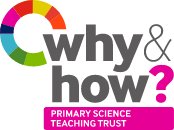 PSTT is a charitable trust helping to improve the teaching and learning of primary science across the UK.
PSTT is a charitable trust helping to improve the teaching and learning of primary science across the UK.
The Resources area on their website has a range of themed resource collections including 'Science for one' and 'Science fun at home', both of which have been added in response to the Covid-19 situation.
Details here.
Primary Upd8
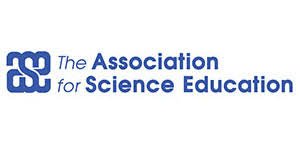 Primary upd8 is a series of high-quality, engaging science activities for 5-11 year olds. These activities are free as part of ASE Primary Membership.
Primary upd8 is a series of high-quality, engaging science activities for 5-11 year olds. These activities are free as part of ASE Primary Membership.
Each activity is based on a current event or an everyday life context to help you make your science lessons more enjoyable and links to scientific enquiry skills. The activities support literacy and numeracy work and are designed to take advantage of interactive whiteboards. Each activity comes as an editable PowerPoint presentation, with plenty of colourful cartoon illustrations and interactive elements to grab children’s attention.
Details here.
Debate kits from I’m a Scientist - Get me out of here
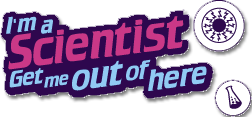 I'm a Scientist have a collection of debate kits for students, ranging from 'Are we too clean?' to 'Food security' and their latest one entitled 'Should our town centre be for self-driving cars only?'. The kits can be used to develop students’ debating and discussion skills around difficult issues, and encourage them to consider problems from a range of different aspects.
I'm a Scientist have a collection of debate kits for students, ranging from 'Are we too clean?' to 'Food security' and their latest one entitled 'Should our town centre be for self-driving cars only?'. The kits can be used to develop students’ debating and discussion skills around difficult issues, and encourage them to consider problems from a range of different aspects.
Find out more and about all the debate kits here.
Are you a Science Whizz? Science Quizzes from Timstar
 Test your knowledge with Timstar’s quiz…
Test your knowledge with Timstar’s quiz…
Whether you are a technician, teacher or a student, why not put your brain to the test and see how science-savvy you are. You could even make use of some great online platforms such as Zoom to complete the quizzes with your colleagues, friends or family during lockdown.
A quiz is a great way of testing knowledge on a specific subject and an excellent form of revision for students. All questions are in line with Biology, Chemistry and Physics areas covered within the Key stage 3 and 4 curriculums.
These are perfect resources for revision sessions online and in the classroom.
Details here.
Hotspots of Science in Wales
Hotspots of Science in Wales looks to discover and explain interesting real world science from 30 themed locations all around Wales covering Physics, Chemistry and Biology for GCSE to A-Level students.
With video, interactives, activity tasks, teachers notes and downloadable worksheets, Hotspots of Science in Wales takes science from the classroom to the great outdoors.
More details here.
Welsh Language Science Videos
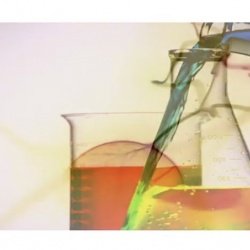 A series of videos and accompanying short lectures on a range of science topics presented by Professor Andrew Evans from his garden. Produced by Eisteddfod AmGen in response to the cancellation of the National Eisteddfod 2020 due to COVID-19.
A series of videos and accompanying short lectures on a range of science topics presented by Professor Andrew Evans from his garden. Produced by Eisteddfod AmGen in response to the cancellation of the National Eisteddfod 2020 due to COVID-19.
Details here.
STEM @ Home
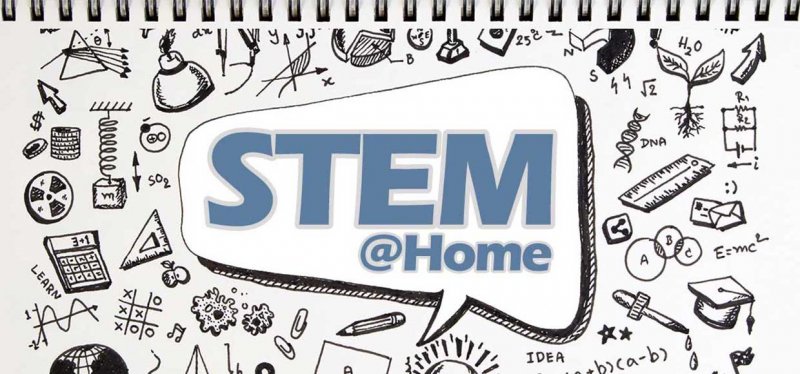 This is a great website from The STEM Hub at Canterbury Christ Church University with packs of resources for home learning on various topics.
This is a great website from The STEM Hub at Canterbury Christ Church University with packs of resources for home learning on various topics.
New topics are being added all the time and each topic has a number of associated resources grouped into Primary and Secondary. They include career resources as well as videos, STEM Ambassador talks and activities.
Details here.
Oxfam Education
 Oxfam Education offers a huge range of ideas, resources and support for developing global learning in the classroom and the whole school. All of the resources here support Education for Global Citizenship – education that helps pupils understand their world and make a positive difference in it.
Oxfam Education offers a huge range of ideas, resources and support for developing global learning in the classroom and the whole school. All of the resources here support Education for Global Citizenship – education that helps pupils understand their world and make a positive difference in it.
Some suggestions to get you started:
Back to School with Global Citizenship - Global citizenship is all about encouraging young people to develop the knowledge, skills and values they need to engage with the world. Ideal for use at the start of the academic year, school term or a new topic, the following activities support learners aged 7 to 14 to develop some of the key elements of responsible global citizenship: to ask questions, make connections, and explore viewpoints and values.
Climate Change Quiz - Climate change is the single greatest threat to the progress which has been made to end poverty. It will most profoundly affect the world's poorest people who are less able to deal with shocks and have contributed least to the changing climate. This quiz can help your learners explore the causes and effects of climate change. It will also encourage them to think about how the impacts can be mitigated and adapted to.
Main website here.
Experiments on Film
This video based resource focuses on the core and compulsory practical exercises as highlighted in the WJEC's new specifications for AS and A level Biology, Chemistry and Physics. The library of 80+ videos aims to help learners to strengthen their practical skills in preparation for written examination papers and to create their 'laboratory book' as required in the new courses. The resource is designed to be used for independent learning and revision as well as in the classroom to help teachers support learners' practical skills.
More details here.
Encounter Edu Teacher Resources
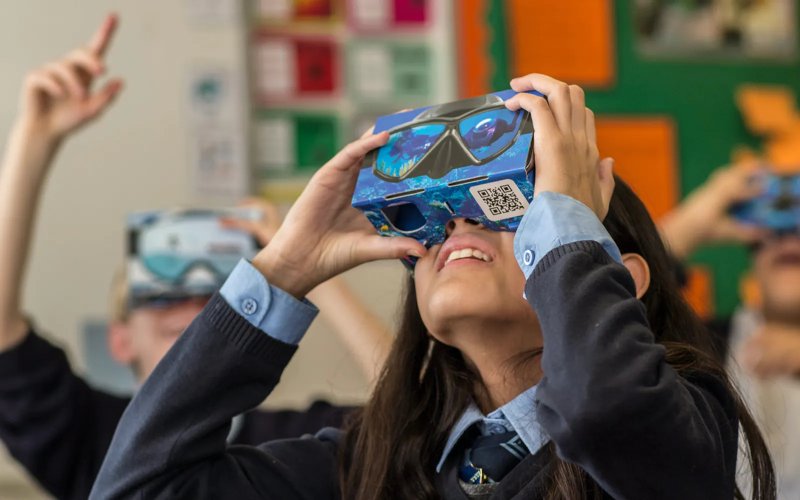 Encounter Edu designs and delivers sponsored STEM and global learning programs transforming education inside and outside the classroom.
Encounter Edu designs and delivers sponsored STEM and global learning programs transforming education inside and outside the classroom.
They specialise in producing live lessons on global topics for the classroom and create bespoke education programmes designed to engage and inspire. Their immersive learning experiences give students the necessary understanding and skills to tackle the world's most pressing issues.
On their website they have free teacher resources for addressing environmental and societal issues in the classroom across all ages, key stages and grades. Titles include, Our Ocean Planet, Submarine STEM and Google Expeditions.
Details here.
IRIS – Institute of Research in Schools
 Young people and their teachers lack opportunities to make valuable, recognised contributions to the scientific community, as the current education system does not offer students and teachers the experiences that are necessary to participate in authentic STEM research while at school.
Young people and their teachers lack opportunities to make valuable, recognised contributions to the scientific community, as the current education system does not offer students and teachers the experiences that are necessary to participate in authentic STEM research while at school.
The IRIS mission is three-fold:
- To increase the number of young people and teachers who engage with STEM research at school in a way that raises aspiration, participation and attainment so that more young people, especially those from disadvantaged groups, continue with careers in STEM
- To enable teachers to be connected as key partners in STEM research and so retain them in the profession
- To contribute new ideas and approaches to tackling global challenges including anti-microbial resistance, climate change, energy production, engineering and materials science
IRIS makes cutting edge research projects open to school students and their teachers so that they can experience the excitement and challenge of science. We do this by making data accessible to schools, providing teacher training and resources, and by lending out scientific research equipment. For example, we recently launched the Genome Decoders project with the Wellcome Genome Campus, where students annotate a human whipworm genome.
You can view a summary video here.
The BP Educational Service (BPES)
 The BP Educational Service (BPES) provides inspiring and engaging resources to support the teaching of Science, Technology, Engineering and Maths. We provide real-world examples, challenges and information using videos, interactive activities, worksheets and much more.
The BP Educational Service (BPES) provides inspiring and engaging resources to support the teaching of Science, Technology, Engineering and Maths. We provide real-world examples, challenges and information using videos, interactive activities, worksheets and much more.
The resources are developed with the help of teachers and educational specialists and are FREE for teachers and parents of 4-19 year olds. They are curriculum linked and reflect our focus on energy, environment, leadership and business skills within the key curriculum areas of Science, Geography, Citizenship and PSHE/PSE/PSD, Literacy, Business Studies, Design and Technology, Engineering and Enterprise.
Citizen Science project – Penguin Watch
 Penguin Watch is an excellent tool for teaching students about a range of topics, including conservation, the scientific method, Antarctica and polar/cold habitats, and - of course - penguins! Teach students about a range of topics, including conservation, the scientific method, Antarctica and polar/cold habitats, and - of course – penguins with Penguin Watch!
Penguin Watch is an excellent tool for teaching students about a range of topics, including conservation, the scientific method, Antarctica and polar/cold habitats, and - of course - penguins! Teach students about a range of topics, including conservation, the scientific method, Antarctica and polar/cold habitats, and - of course – penguins with Penguin Watch!
This project can be found on the Zooniverse website along with many other projects including Floating Forests, all about kelp, and Bash the Bug, helping to fight resistance to antibiotics.
The EdComs Teachers website
 The EdComs Teachers website offers free, high quality resources and ideas for lessons across a full range of subject areas for both primary and secondary schools. All the free resources are produced in collaboration with teachers and linked to the UK curricula.
The EdComs Teachers website offers free, high quality resources and ideas for lessons across a full range of subject areas for both primary and secondary schools. All the free resources are produced in collaboration with teachers and linked to the UK curricula.
Register here.
Science Museum Classroom Resources and Online Games
 The Science Museum provides a range of classroom resources that are free or sponsored. They can be used at school, at home or in after school clubs. All classroom resources here.
The Science Museum provides a range of classroom resources that are free or sponsored. They can be used at school, at home or in after school clubs. All classroom resources here.
Futurecade is a suite of four online games, Bacto-Lab, Space Junker, Cloud Control and Robo-Lobster, which engage students with current and future applications of science through gameplay and powerful questions. Intended to provoke discussion rather than teach the science, the games are supported by teachers’ notes giving top tips for using Futurecade in the classroom.
All games here.
Microscopes for Schools
 A new website to support microscopy in primary schools funded and run by the Medical Research Council and Lister Institute of Preventive Medicine.
A new website to support microscopy in primary schools funded and run by the Medical Research Council and Lister Institute of Preventive Medicine.
They hope that teachers, parents and children will be encouraged by the website to use a microscope and discover the microscopic world.
More here.
Catalyst Magazine
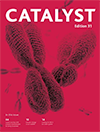 Catalyst Magazine is published termly and is aimed at students aged 14-19.
Catalyst Magazine is published termly and is aimed at students aged 14-19.
It’s packed full of interesting articles on cutting-edge science, interviews and research written by leading academics.
Find out here how you can subscribe today.
Oxford University Press resources

A bank of free science resources for ages 11 - 18.
Oxford University Press have created a range of free science resources on various topics.
Download free worksheets, lessons and activities to use with your biology, chemistry and physics students across KS3, GCSE and A Level.
Details here.
GSK STEM Education
 GSK have a dedicated section on their website devoted to STEM education.
GSK have a dedicated section on their website devoted to STEM education.
Learning resources - Explore free curriculum-linked resources for 11-14s, to open students' minds to the opportunities STEM can offer and to help build their STEM capital.
Educator support - Deliver our resources with confidence and learn more about getting the most out of the GSK STEM Education programme.
Nobelprize.org
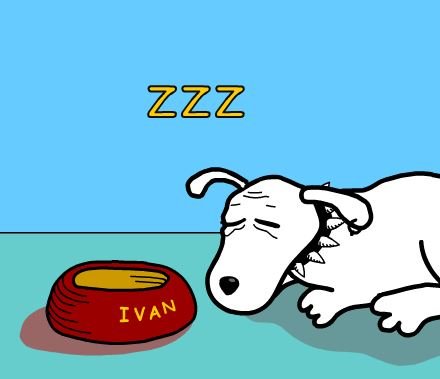 You don't have to be a genius to understand the work of the Nobel Laureates. These games and simulations, based on Nobel Prize-awarded achievements, will teach and inspire you while you're having FUN!
You don't have to be a genius to understand the work of the Nobel Laureates. These games and simulations, based on Nobel Prize-awarded achievements, will teach and inspire you while you're having FUN!
Please note that as all games require the use of Adobe Flash they are only available until December 2020.
Details here.
AimHi Online lesson videos
 Live, Interactive, Online Lessons
Live, Interactive, Online Lessons
AimHi is a global online school for students to learn, interact and be inspired by charismatic role models and exceptional teachers, for free.
Details here.
15 Awesome Science Experiments for Kids to Try at Home
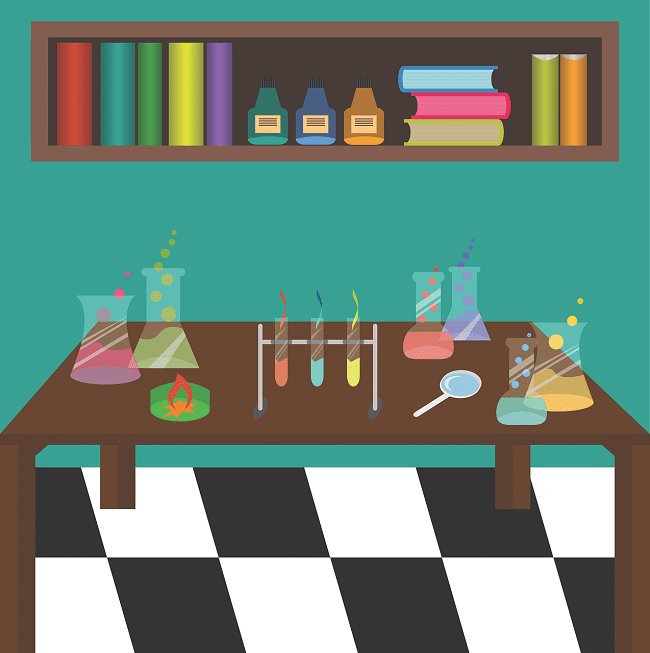 This is a web page written by a Mum during the COVID-19 lockdown. As well as instructions, there is a brief scientific explanation for each experiment.
This is a web page written by a Mum during the COVID-19 lockdown. As well as instructions, there is a brief scientific explanation for each experiment.
"Each one of the experiments listed is designed to excite curiosity, produce some amazing outcomes, create lots of laughter and introduce some science facts they’ll never forget."
Details here.
Online Biology resources
Online Biology resources
e-Bug
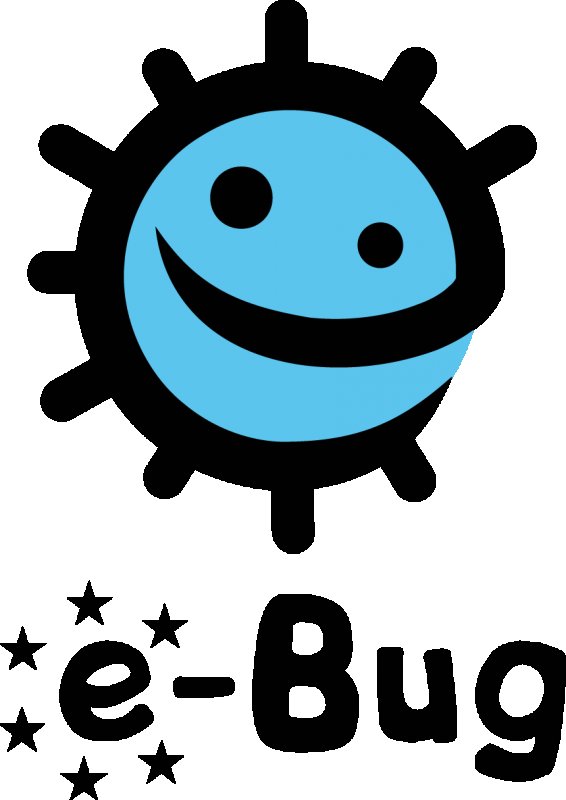 The e-Bug school resource is an exciting, fun, FREE educational resource on microbes, hygiene and the spread of disease. It contains detailed lesson plans, a bank of resources including images, presentations, games, quizzes fact files and much more. Resources are tailored to primary and secondary students. There is an option to select Wales on the top right of the screen.
The e-Bug school resource is an exciting, fun, FREE educational resource on microbes, hygiene and the spread of disease. It contains detailed lesson plans, a bank of resources including images, presentations, games, quizzes fact files and much more. Resources are tailored to primary and secondary students. There is an option to select Wales on the top right of the screen.
Main website here.
your genome schools resource on malaria
 Malaria challenge is a free multimedia educational resource for 14-18 year old students and their teachers. The aim of the resource is to raise awareness of malaria by exploring the different stages of the Plasmodium lifecycle and discussing methods for treating and preventing the disease. The resource contains 3D animations, scientific images and videos of the parasite as well as interviews with world leading malaria researchers.
Malaria challenge is a free multimedia educational resource for 14-18 year old students and their teachers. The aim of the resource is to raise awareness of malaria by exploring the different stages of the Plasmodium lifecycle and discussing methods for treating and preventing the disease. The resource contains 3D animations, scientific images and videos of the parasite as well as interviews with world leading malaria researchers.
Details here.
BioNet
 The Society of Biology has a grade of membership for 14-19 year-olds which aims to bridge the gap between the classroom and ‘real world’ biology. School and college students can join for just £5 per year. Membership will give them access to a great range of services, including an online subscription to The Biologist magazine.
The Society of Biology has a grade of membership for 14-19 year-olds which aims to bridge the gap between the classroom and ‘real world’ biology. School and college students can join for just £5 per year. Membership will give them access to a great range of services, including an online subscription to The Biologist magazine.
Details here.
Virtual Tours of the National Marine Aquarium for Schools
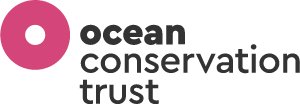 Take a guided tour of the National Marine Aquarium, the UKs largest public Aquarium and home to over 4,000 amazing marine creatures with a member of our dedicated Schools Team from the comfort of your own classroom!
Take a guided tour of the National Marine Aquarium, the UKs largest public Aquarium and home to over 4,000 amazing marine creatures with a member of our dedicated Schools Team from the comfort of your own classroom!
Your journey begins in our Plymouth Sound exhibit, where students will encounter some of our much loved, and most charismatic local life around the British Coasts. After this, they will move on to the largest tank in the whole of the United Kingdom – our Atlantic Ocean exhibit. Here, they will get a close-up look at our turtle, stingrays and sharks. The Tour continues on to our Blue Planet exhibits, where they will meet a wide variety of beautiful creatures that can be found in coral reefs across the world.
All tours are linked to the science curriculum and delivered by our fully trained Schools Officers, who will answer your students’ questions, and pose their own interesting questions to prompt and develop your students’ learning.
Please note there is a charge for tours.
Details here.
Home learning resources from RSPB Cymru
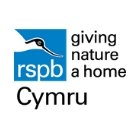 The RSPB have identified a number of resources parents can deliver at home with their children for 4 to 11-year olds.
The RSPB have identified a number of resources parents can deliver at home with their children for 4 to 11-year olds.
The focus of every resource is to connect learners with nature and learn more about how they can help give nature a home.
The resources will help Foundation Phase learners gain more knowledge and understanding of the world and improve their language, literacy and communication skills. They will also help with their creative development.
For teaching Key Stage 2 learners, they link to science, literacy and numeracy.
Resources include: Minibeast Safari to do in your garden; Let's talk nature activity sheets; Guides on Make homes for nature.
Details here.
Free deep-sea education resources: ATLAS at Home
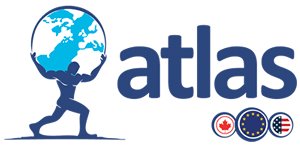 The EU-funded H2020 ATLAS project has developed a range of free, open-access educational resources on issues and topics related to the Atlantic Ocean and specifically the deep sea. Originally created for teachers and marine educators to use in a class environment, the fun learning activities are also ideal resources to support home-schooling, and are available in several languages.
The EU-funded H2020 ATLAS project has developed a range of free, open-access educational resources on issues and topics related to the Atlantic Ocean and specifically the deep sea. Originally created for teachers and marine educators to use in a class environment, the fun learning activities are also ideal resources to support home-schooling, and are available in several languages.
The resources were developed by ATLAS project partners Dynamic Earth, University of Edinburgh and AquaTT. Children, parents and teachers can learn about deep sea creatures and habitats by completing their own augmented colouring sheets, that come to life when viewed through the Spectacular App. You can also try your hand at surveying the ‘ATLAS coral reef’, a composite of images from the cold-water coral reefs in Irish and Scottish waters, displayed as a floor mat featuring key deep sea animals from ATLAS research.
For teachers, or parents leading home-schooling, there are seven education packs, each containing ready-planned lessons and activities related to the deep sea. These include multi-lingual resources covering ‘Animal, vegetable, mineral?’, a lesson explaining hydrothermal vents, the importance of the ocean, ocean acidification, and some fun experiments demonstrating the effect of high pressure in the deep sea. There is also a taxonomy challenge, and a lesson on threats to coral reefs.
With many of us still confined at home, now is the perfect time to embark on deep-sea exploration with ATLAS Atlantic Adventures.
Follow their social media channels (#ATLASatHome, Twitter @eu_atlas, Facebook @EuATLAS) for more ocean-themed learning activities.
Details here.
Online Chemistry resources
Online Chemistry resources
Salters' - The Festivals of Chemistry resource pack
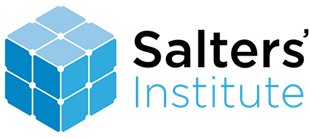 Sadly, the 2020 Festivals of Chemistry season was cancelled, however to ensure that your students aren't disappointed, we've pulled together all of the resources you need to run it in your school laboratories!
Sadly, the 2020 Festivals of Chemistry season was cancelled, however to ensure that your students aren't disappointed, we've pulled together all of the resources you need to run it in your school laboratories!
This includes:
- Salters' Challenge
- School Challenge; and
- even some resources from our partners to support your CPD!
We'd love to see how your students get on and if they manage to solve the curious case at the University of Salterstown!
Details here.
Royal Society of Chemistry Education website
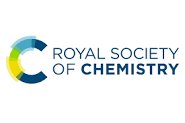 The Royal Society of Chemistry have a website dedicated to Education with a wealth of resources from primary to further education plus a section dedicated to Science Technicians.
The Royal Society of Chemistry have a website dedicated to Education with a wealth of resources from primary to further education plus a section dedicated to Science Technicians.
Details here.
Society of Cosmetic Scientists – Resources for 11-16s
There is a Teachers' Area with resources for teachers and students. Includes lesson plans, worksheets and an interactive online bath bomb experiment.
There's also a range of Career Case Studies - there's a wealth of careers in the cosmetic science industry. From formulating, to testing, to working with huge international brands! Take a look at the profiles, all of whom are working in the industry.
Information and downloads here.
Online Physics resources
Online Physics resources
IOP Your future with physics: A guide for young people
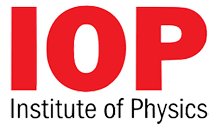 IOP has an online careers resource, Your Future with Physics, to support young people who are considering their subject choices and looking to their future career.
IOP has an online careers resource, Your Future with Physics, to support young people who are considering their subject choices and looking to their future career.
The careers guide gives advice on studying physics as well as real-world examples of the opportunities that studying physics can bring, and showcases academic and vocational routes including apprenticeships and technical roles. Films, stories, interviews and Q&As will help inform and inspire young people and their families.
Details here.
IOP STEM Club pack
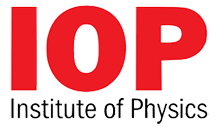 The STEM (science, technology, engineering and maths) club pack contains physics ideas and activities for use in after school clubs.
The STEM (science, technology, engineering and maths) club pack contains physics ideas and activities for use in after school clubs.
The pack has three parts. Section 1 contains nine activities, each of which can be run over 2-3 sessions, section 2 contains 20 short “physics to go” experiments, most of which also have an accompanying video, and section 3 contains over 80 “Do try this at home” experiments featuring the IOP’s intrepid cat and dog team Marvin and Milo.
Details here.
Welsh Language Science Videos
 A series of videos and accompanying short lectures on a range of science topics presented by Professor Andrew Evans, Aberystwyth University Physics Department, from his garden. Produced by Eisteddfod AmGen in response to the cancellation of the National Eisteddfod 2020 due to COVID-19.
A series of videos and accompanying short lectures on a range of science topics presented by Professor Andrew Evans, Aberystwyth University Physics Department, from his garden. Produced by Eisteddfod AmGen in response to the cancellation of the National Eisteddfod 2020 due to COVID-19.
Details here.
RAF100 centenary project: free STEM materials, pupil workshops and CPD for teachers and techs
The RAF100 website offers free STEM activities written by the IoP and historical material, including short videos, from the Historical Association.
The website and all its content was written for the RAF Centenary in 2018 but all activities and resources are still available.
Details here.
Hunt for the elusive Higgs Boson using an iPhone or Android device!
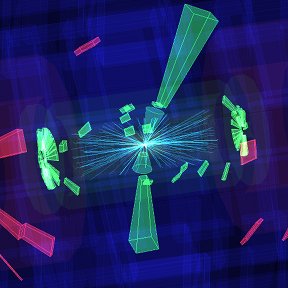 The App designed by physicists at the University of Oxford, Collider, allows users to search for the Higgs Boson particle using real data direct from the Large Hadron Collider at CERN. The App also includes games – and a successful identification of the Higgs can be shared to Facebook.
The App designed by physicists at the University of Oxford, Collider, allows users to search for the Higgs Boson particle using real data direct from the Large Hadron Collider at CERN. The App also includes games – and a successful identification of the Higgs can be shared to Facebook.
Details here.
Diamond: The Game
 Are you ready to make a scientific breakthrough in one of the biggest research facilities in the UK?
Are you ready to make a scientific breakthrough in one of the biggest research facilities in the UK?
Diamond: The Game puts students directly in the role as a researcher at the Diamond Light Source, visiting different beamlines to make progress in a diverse range of scientific projects in Physics, Chemistry, Cultural Heritage, and more. As you travel around the synchrotron you will have to make the most of your experiments, as well as working with your fellow players, in order to be remembered as the most famous scientist!
Dr Mark Basham and Dr Claire Murray from Diamond Light Source and Dr Matthew Dunstan from the University of Cambridge created the game to showcase both the research performed at this world-leading facility, but also to give students first-hand experience of the different aspects of actually working in scientific research. Whether it is the variety of science that exists, the timely value of a vital collaboration, the disappointment of a failed experiment, or gratitude for the help from a friendly staff scientist, the game puts students directly in the action and to make their own choices about what type of scientist they want to be.
In response to the Covid-19 school closures, there are additional printable versions to play at home, one for 5+ and one for 10+.
Details here.
Cardiff University Physics and Astronomy Resources page
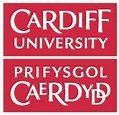 If you're after resources for your children, your students, or even yourself, there's a lot on offer from a wide range of sources.
If you're after resources for your children, your students, or even yourself, there's a lot on offer from a wide range of sources.
You will find links to some suggested resources put together by staff and students at Cardiff University School of Physics and Astronomy. Some have been created by them, but many are from external organisations - though they all come recommended!
Details here.
Perimeter Institute Educational Resources
 Perimeter Institute's free digital resources are designed to help teachers explain a range of important physics and science topics. Each compilation includes a set of lesson plans, hands-on activities and demos, modifiable worksheets, background information for teachers, and original PI videos.
Perimeter Institute's free digital resources are designed to help teachers explain a range of important physics and science topics. Each compilation includes a set of lesson plans, hands-on activities and demos, modifiable worksheets, background information for teachers, and original PI videos.
Details here.
They also have a wide range of downloadable posters here.
Online Space resources
Online Space resources
Universe in the Classroom’s Space Education Resources
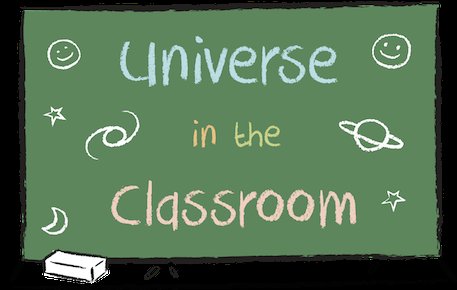 The Welsh Government funding for Universe in the Classroom ended in June 2018. However, the site is still available as an archive of the project.
The Welsh Government funding for Universe in the Classroom ended in June 2018. However, the site is still available as an archive of the project.
Universe in the Classroom now offer all its classroom activity guides in both English and Welsh.
Universe in the Classroom works with a higher percentage of Welsh medium schools than the national average, with 22% of our partner schools being Welsh medium. Therefore, the provision of Welsh language materials is a priority.
We now offer all but one of our resources in Welsh language. This includes a selection of printable activity booklets, cut-out models and classroom activity guides.
English and Welsh education materials here. Printed resources here. Teacher activity guides here.
FREE Principia Space Diaries & Resources: be like Tim Peake!
 The Principia Space Diary is back. Once again thousands of school children have the chance to become space experts as they learn about British European Space Agency astronaut Tim Peake’s historic space mission.
The Principia Space Diary is back. Once again thousands of school children have the chance to become space experts as they learn about British European Space Agency astronaut Tim Peake’s historic space mission.
The Space Diary programme aims to empower children and engage them in Science, Technology, Engineering and Maths (STEM) learning by giving them the chance to create and personalise their very own book while they follow Tim’s mission.
All lesson plans are differentiated for P1-5 (KS1 and KS2) for teachers in England, Wales, Scotland and Northern Ireland and extension activities provide extra challenges for those who need them.
Is There Anyone Out There?
![]() This resource is based on the quest to discover more about the solar system through space projects such as the European Space Agency’s Aurora programme, and NASA’s Curiosity mission seeking to gather evidence of life on the planet Mars. It is funded by the UK Space Agency and developed by ESERO-UK and CIEC Promoting Science. Students take on the role of space scientists or space engineers to discover more about Mars. The activities in this resource are designed for students aged 9-12 years. Details here.
This resource is based on the quest to discover more about the solar system through space projects such as the European Space Agency’s Aurora programme, and NASA’s Curiosity mission seeking to gather evidence of life on the planet Mars. It is funded by the UK Space Agency and developed by ESERO-UK and CIEC Promoting Science. Students take on the role of space scientists or space engineers to discover more about Mars. The activities in this resource are designed for students aged 9-12 years. Details here.
Mission X: train like an astronaut
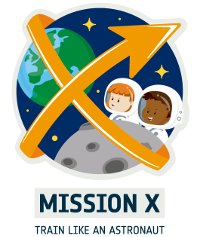 Carry out PE and science challenges to learn about keeping healthy in the context of space exploration.
Carry out PE and science challenges to learn about keeping healthy in the context of space exploration.
Mission X uses the excitement of space exploration to inspire students to learn more about nutrition, exercise, science and space exploration. Schools who register for the challenge will receive invitations to a range of additional space outreach activities.
The activities in this resource are designed for students aged 8 -14 but can be adapted to older and younger age groups. They can also be used for after school clubs and informal learning events.
Details here.
Sun|trek – Take a journey into space and find out more about the Sun and its effect on the Earth…
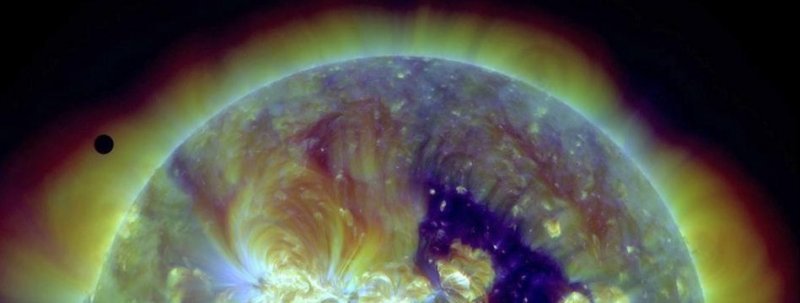
This website has helpful tips and ideas from teachers and educators.
There are also informative posters which can be downloaded. Other resources are available on request to the Sun|trek team, such as solar CDs, handouts, Sun|trek pens or posters.
More here.
Paxi animations
 These short animations of Paxi, a friendly alien explorer are a great way of introducing children to the Solar System, comets and finding evidence for life on Mars.
These short animations of Paxi, a friendly alien explorer are a great way of introducing children to the Solar System, comets and finding evidence for life on Mars.
More here.
ESA Education
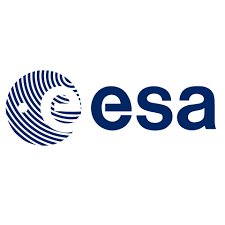 ESA's (European Space Agency) Education Office is responsible for the Agency’s corporate education programme bringing together young people from many different nations.The aim is to help young Europeans, aged from 6 to 28, to gain and maintain an interest in science and technology, with the long-term objectives of contributing towards the creation of a knowledge-based society and ensuring the existence of a qualified workforce for the Agency that will ensure Europe’s continued leadership in space activities.
ESA's (European Space Agency) Education Office is responsible for the Agency’s corporate education programme bringing together young people from many different nations.The aim is to help young Europeans, aged from 6 to 28, to gain and maintain an interest in science and technology, with the long-term objectives of contributing towards the creation of a knowledge-based society and ensuring the existence of a qualified workforce for the Agency that will ensure Europe’s continued leadership in space activities.
This is achieved by organising various activities designed for specific age groups, keeping the educational community informed about these developments, and providing inspirational materials that assist teachers and students with the learning process.
Resources here.
Cardiff University Physics and Astronomy Resources page
 If you're after resources for your children, your students, or even yourself, there's a lot on offer from a wide range of sources.
If you're after resources for your children, your students, or even yourself, there's a lot on offer from a wide range of sources.
You will find links to some suggested resources put together by staff and students at Cardiff University School of Physics and Astronomy. Some have been created by them, but many are from external organisations - though they all come recommended!
Details here.
The Astro Science Challenge Resources
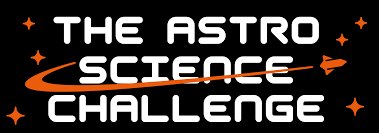 The Astro Science Challenge is an app where children can safely do some fun Science, Maths and English whilst learning all about space. There are six Missions and we recommend you aim to complete one Mission a week.
The Astro Science Challenge is an app where children can safely do some fun Science, Maths and English whilst learning all about space. There are six Missions and we recommend you aim to complete one Mission a week.
Suitable to be run by teachers or parents and supported by British and European Space Agency astronaut Tim Peake. Tim is passionate about getting kids into science and thinks the Astro Science Challenge is a brilliant project.
All details here.
Online Food resources
Online Food resources
Chilled Education – cool free lesson plans and much more
 Chilled Education provides imaginative resources and inspirational career ideas for science teaching. From free bespoke lesson plans (for KS 2-4) to innovative practical resources the initiative uses food as a classroom resource. Its ultimate aim is to harness students’ interest in science to set them on a wide range of rewarding careers in the chilled food production sector. Find out more and download the plans here.
Chilled Education provides imaginative resources and inspirational career ideas for science teaching. From free bespoke lesson plans (for KS 2-4) to innovative practical resources the initiative uses food as a classroom resource. Its ultimate aim is to harness students’ interest in science to set them on a wide range of rewarding careers in the chilled food production sector. Find out more and download the plans here.
Food a fact of life
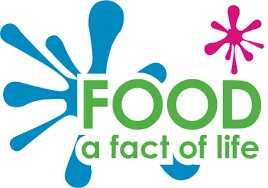 FREE resources about healthy eating, cooking, food and where food comes from. Provides stimulating learning and supports curricula throughout the UK for all ages.
FREE resources about healthy eating, cooking, food and where food comes from. Provides stimulating learning and supports curricula throughout the UK for all ages.
Details here.
TasteEd
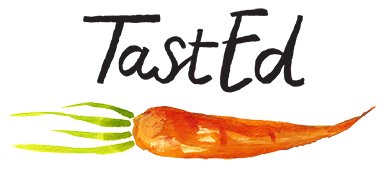 We offer teachers support, training and resources to deliver a range of simple taste education lessons tailored to the English National Curriculum. In a typical TastEd lesson – which requires no kitchen or fancy equipment to teach – a teacher brings fresh vegetables or fruits into the classroom. The children talk and write about what they see, smell, touch, hear and taste and whether they enjoy it or not.
We offer teachers support, training and resources to deliver a range of simple taste education lessons tailored to the English National Curriculum. In a typical TastEd lesson – which requires no kitchen or fancy equipment to teach – a teacher brings fresh vegetables or fruits into the classroom. The children talk and write about what they see, smell, touch, hear and taste and whether they enjoy it or not.
TastEd lessons are based on the Sapere method, which has been used with great success in many European countries for decades. Taste education is food education pared down to its simplest form, but the impact on the way children relate to food can be huge.
To find out more go here
Online Energy resources
Online Energy resources
OurFuture.Energy
 OurFuture.Energy is the place for teachers to find all the energy themed resources you'll need for your classroom. The website features an ever growing bank of curriculum-aligned resource materials for schools in England, Wales, Scotland and Northern Ireland. It's also brilliant for 11 to 16 year olds to use when studying for homework or exams.
OurFuture.Energy is the place for teachers to find all the energy themed resources you'll need for your classroom. The website features an ever growing bank of curriculum-aligned resource materials for schools in England, Wales, Scotland and Northern Ireland. It's also brilliant for 11 to 16 year olds to use when studying for homework or exams.
To get the latest updates delivered straight to your inbox, sign-up for the OurFuture.Energy newsletter!
More details here.
Energy Chest
 A treasure-trove of information and activities to support energy studies in UK schools. Energy Chest has been developed for pupils aged 8-14 years and is divided into three modules: Energy in Buildings, Energy and the Environment, Energy Sources.
A treasure-trove of information and activities to support energy studies in UK schools. Energy Chest has been developed for pupils aged 8-14 years and is divided into three modules: Energy in Buildings, Energy and the Environment, Energy Sources.
Details here.
Energy Academy
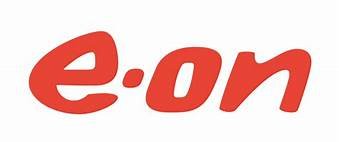 Get involved and be inspired with e.on, range of free resources aimed at engaging young people aged 5 to 18 in STEM subjects.
Get involved and be inspired with e.on, range of free resources aimed at engaging young people aged 5 to 18 in STEM subjects.
From powering create problem solving to getting your dream job, our range of free resources will energise young people’s inquisitive minds and help them discover science in unexpected ways.
More here.
Online Medicine resources
Online Medicine resources
Medicine Makers
 The Biochemical Society and the British Pharmacological Society have produced an interactive outreach activity about drug-target interactions called Medicine Makers.
The Biochemical Society and the British Pharmacological Society have produced an interactive outreach activity about drug-target interactions called Medicine Makers.
The guidance and instruction notes can be downloaded FREE from the STEM Learning Resource Library.
Details here.
The Institute of Physics & Engineering in Medicine (IPEM)
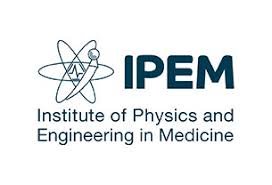 Did you know that studying Physics or Engineering can lead to a huge variety of careers in medicine?
Did you know that studying Physics or Engineering can lead to a huge variety of careers in medicine?
The Institute of Physics & Engineering in Medicine (IPEM) have produced three careers videos on the range of rewarding physics and engineering careers available at all levels in healthcare. They use first-hand accounts to show some of the many different roles, including direct work with patients, those in backroom positions that help ensure the safety and effectiveness of treatments, and researchers and developers who are improving treatments and equipment.
Details here.
Medical Mavericks Careers Resources
 The Medical Mavericks website states "We inspire the next generation of medics and scientists by taking real medical and sports science equipment into schools, colleges & events all over the UK. We like to describe ourselves as the UK’s No 1, OMG, jaw dropping Careers, STEM & Sports Science Enrichment Experience for schools, colleges and events!".
The Medical Mavericks website states "We inspire the next generation of medics and scientists by taking real medical and sports science equipment into schools, colleges & events all over the UK. We like to describe ourselves as the UK’s No 1, OMG, jaw dropping Careers, STEM & Sports Science Enrichment Experience for schools, colleges and events!".
They also have a great Careers section with plenty of downloadable resources.
Find their website here.
Other online Science resources
Other online Science resources
FIRE Lab Kids
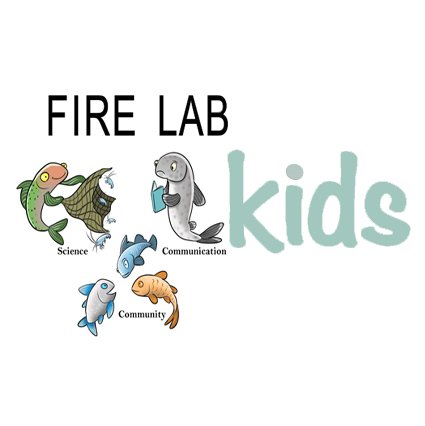 FIRE Lab Kids provides a safe place for young people to play as they learn about fresh waters and the research that our lab is involved in. It’s also an art-science enrichment and engagement partner for young people, teachers, parents, and carers. You can find and download books, activities, and games of various skill levels aimed at young people ages of 5 to 11. Teachers, carers or parents can contact us to organise engagement and enrichment activities for their classroom, clubs, or groups. All materials and activities on FIRE Lab Kids are free and available to the public. Let’s learn and share about our local rivers!
FIRE Lab Kids provides a safe place for young people to play as they learn about fresh waters and the research that our lab is involved in. It’s also an art-science enrichment and engagement partner for young people, teachers, parents, and carers. You can find and download books, activities, and games of various skill levels aimed at young people ages of 5 to 11. Teachers, carers or parents can contact us to organise engagement and enrichment activities for their classroom, clubs, or groups. All materials and activities on FIRE Lab Kids are free and available to the public. Let’s learn and share about our local rivers!
Details here.
Eden Project - Virtual School Trips
 Curriculum-linked virtual workshops for your class
Curriculum-linked virtual workshops for your class
Enjoy a dose of Eden inspiration for your class wherever you are. Our virtual school trips are delivered online by a member of our Education Team just for your class. We’ll lead the session and provide all the resources and materials you need to support your learners in class.
There is a choice of themes for years 3 to 9.
Please note that there is a charge for the sessions.
Details here.
Adventures at Sea
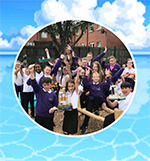 Funded by the Maritime Educational Foundation, Adventures at Sea is a fun, free online resource is designed to raise aspirations while introducing children to the Merchant Navy. It revolves around eight core STEM activities that require children to design, build, launch, load and propel their ships. Each of the activities are supplemented with a short video which brings the maritime industry to life. Aimed at years 5/6, this is suitable for classroom activities and STEM/science clubs, and includes a downloadable teacher’s guide.
Funded by the Maritime Educational Foundation, Adventures at Sea is a fun, free online resource is designed to raise aspirations while introducing children to the Merchant Navy. It revolves around eight core STEM activities that require children to design, build, launch, load and propel their ships. Each of the activities are supplemented with a short video which brings the maritime industry to life. Aimed at years 5/6, this is suitable for classroom activities and STEM/science clubs, and includes a downloadable teacher’s guide.
Details here.
Discover Materials with IOM3
 The Institute of Materials, Minerals and Mining (IOM3) Schools Affiliate Scheme (SAS) aims to provide support and resources which enrich the teaching of the materials topics in the 11 to 19 curriculum, provide teachers with the knowledge and understanding necessary to teach these areas with confidence and enthusiasm and provide links to members, organisations and universities that can provide additional support.
The Institute of Materials, Minerals and Mining (IOM3) Schools Affiliate Scheme (SAS) aims to provide support and resources which enrich the teaching of the materials topics in the 11 to 19 curriculum, provide teachers with the knowledge and understanding necessary to teach these areas with confidence and enthusiasm and provide links to members, organisations and universities that can provide additional support.
Standard membership of the scheme is free and gives teachers access to a wide range of resources through the SAS website. These include newsletters, support literature, magazines and journals, presentations, links to the Institute’s network of local societies and access to the Materials Information Service.
Members also have access to additional resources such as curriculum-related materials sessions in school, Materials Discovery Boxes or attending a conference for teachers, which incur a small charge.
The resources produced for members are appropriate to the materials topics featured in the science and D&T curricula from Key Stage 3 upwards and we are always open for suggestions for new resources that would improve your materials teaching.
More about the Schools Affiliate Scheme here.
Ospreys Kids
 The fascinating world of aviation awaits you!
The fascinating world of aviation awaits you!
Join in to explore a whole range of home-based learning activities and resources for both parents and children. Here you’ll find fun aviation related competitions, challenges and activities that will make your time at home fly by!
Flying Start Challenge Home Activity Pack
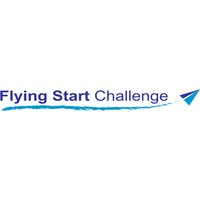 Flying Start Challenge is a regional competition to design and build a hand launched glider which will fly as far and as straight as possible.
Flying Start Challenge is a regional competition to design and build a hand launched glider which will fly as far and as straight as possible.
During Covid-19 Lockdown a this Home Activity Pack is available. Use it to help you to learn about aircraft design, manufacture and testing at home and inspire you to become an engineer in the future.
Details here.
Airbus Foundation Website
 This online portal helps young people understand science through the world of aerospace. It’s also a science education partner for teachers and parents to engage students with STEM (Science, Technology, Engineering and Mathematics). Explore this space to learn, design and connect with others.
This online portal helps young people understand science through the world of aerospace. It’s also a science education partner for teachers and parents to engage students with STEM (Science, Technology, Engineering and Mathematics). Explore this space to learn, design and connect with others.
Find videos, games, quizzes and more for 8 to 17 year olds.
Details here.
Creature Ark Animal Videos
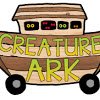 Creature Ark have their own YouTube channel with a collection of videos introducing their animals. Animals range from hissing cockroaches and tarantula to a ferret and all videos are very informative.
Creature Ark have their own YouTube channel with a collection of videos introducing their animals. Animals range from hissing cockroaches and tarantula to a ferret and all videos are very informative.
Details here.
You can also register as a teacher, technician, employer or manager of STEM education activities on www.stem.org.uk to access thousands of accredited resources.
See Science / Gweld Gwyddoniaeth
8 St Andrew's Crescent
Cardiff CF10 3DD
02920 344727
See Science Ltd. Registered in England and Wales. Company Number: 07712605
Design: www.word-smiths.co.uk
See Science / Gweld Gwyddoniaeth
8 St Andrew's Crescent
Cardiff CF10 3DD
02920 344727
STEM resource library
See Science Ltd. Registered in England and Wales. Company Number: 07712605
Design: www.word-smiths.co.uk
